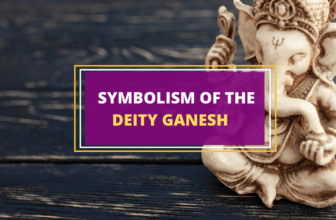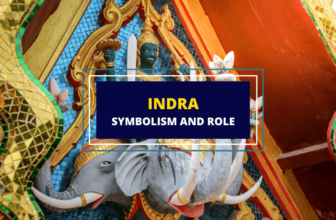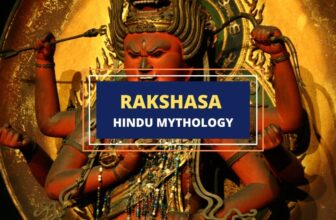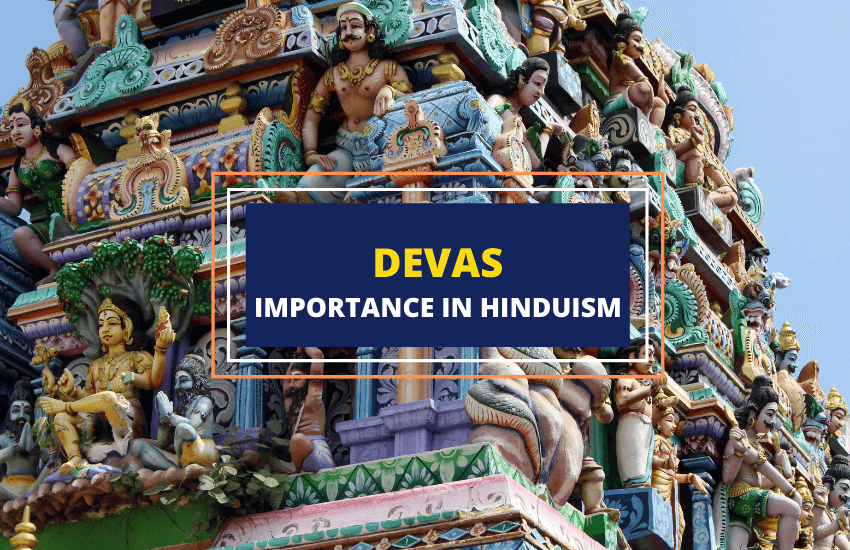
Table of Contents
Devas are celestial beings that appear in Hinduism, Buddhism, and Zoroastrianism (evil spirits and are known as ‘daevas’). They are described as complex beings, with varied powers and roles. There are many types of Devas in Hinduism, considered benevolent beings who fight against evil, and assist, guard, and enhance the spiritual growth of humans.
What Are Devas?
Devas are described as ‘shining beings’, angel-like figures who represent an aspect of God. They are perpetually battling the darkness, which works through asuras, who are demonic beings and enemies of the gods.
There are thousands, or even millions, of Devas, who come in a variety of forms. While the word deva is often translated into English as God, the concept of Devas varies from the Western view of a god.
Devas in Hinduism, Buddhism, and Zoroastrianism
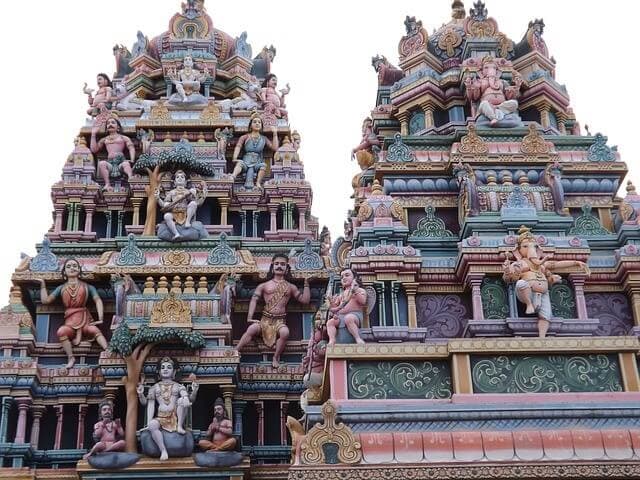
Devas are not only deities that are worshiped and exist solely in Hinduism, they are also represented in Buddhism as well as Zoroastranism.
Devas are completely different manifestations in these three religions. For example, Vedic Hinduism sees Devas as maintainers of universal harmony and balance. They ensure cosmological balance and as celestial beings they have immense impact on existence on all life and everything on Earth.
In addition, Devas are eternal and immortal beings that do not age or get sick, they are far away from mere human-like existence.
In Buddhism, Devas are considered to be beings who live in higher realms with greater pleasures than humans, but they are still part of the cycle of samsara and not worshipped as gods. They can live a very long life and be more fulfilled than humans, but they are not gods.
In Zoroastrianism, daevas are not benevolent eternal celestial beings that maintain cosmic balance but are considered to be evil demonic figures.
The Symbolism of Devas
In the early Hinduist scripture, the Rig Veda, 33 different Devas are described as maintainers of cosmological balance. In later iterations and development of Hinduism, that number increased to a staggering 33 million different Devas.
One of the most important Devas described in the Rig Veda is Indra the god of thunder, rain, river flow, and war. He maintains cosmological balance and upkeeps natural water flows, fundamental for the survival of the cattle herders of Earth.
The most important Devas, however, are Brahma, Shiva, and Vishnu, who form the Trimurthi (Hindu trinity). Over time, they evolved into the most important Hindu deities, creating a trinity that overshadowed the power of previous Devas.
Nowadays, many Devas are not considered to be actual gods. Although their divinity is acknowledged, they are more associated with celestial beings. However, the One God that decides everything in the universe and over which no deity has supreme power is Brahman, seen through Vishnu and Shiva.
It is not uncommon to find interpretations that Devas are just mundane manifestations of Brahman. This notion subjects Devas to lower hierarchy and power.
Devas are also often equalized with Angels in Abrahamic religions. Unlike Abrahamic Angels, Devas do not necessarily pray for humans or guide them. They are more like divine beings who have their roles and existences within the Hindu and Buddhist cosmologies.
Devas in Hinduism
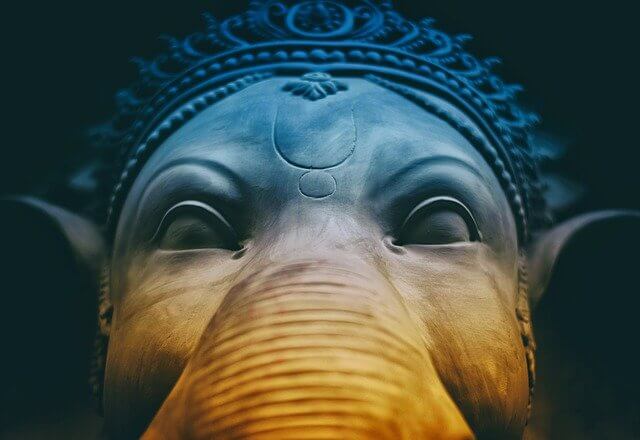
There are many Devas in Hinduism. As mentioned, some sources put this number to 33 or 330 million. However, some are surely more important and famous than others.
- Vishnu: Protector and preserver of humans.
- Shiva: The Lord of creation and destruction.
- Krishna: The god of compassion, love, and protection.
- Brahma: The god of creation of the universe, and knowledge. Not to be mistaken with Brahman, who is an abstract concept and the ultimate controller of all things.
- Ganesha: Remover of obstacles, protector of knowledge, science, and arts.
- Hanuman: God of wisdom, devotion, and strength.
- Varuna: God of water.
- Indra: God of thunder, river flows, lightning, and war.
As you can see, Hinduism is a very complex system of beliefs and, in its different iterations, some of these gods have completely different manifestations and beliefs attributed to them. The question always remains whether they should be worshiped as gods or as celestial beings subordinate to Brahman.
There are those who consider that worshipping Devas as lower celestial beings cannot lead to the achievement of self-fulfilment and that this can only be achieved by praying and worshiping the One Lord.
Devas are also considered by many to be closer to humans than to the One God. However, they aren’t visible to the naked eye.
Some believers do not consider them as immortal and believe that Devas can eventually die and be reborn. They believe that Devas do not maintain cosmological balance or decide the course of natural order. These beliefs put Devas in a subordinate position to One God and just above humans.
Where Does the Word Deva Come From?
Perhaps one of the most interesting things about Devas is the name attributed to these celestial beings. The word Deiwo can be traced to old Proto-Indo European, a language spoken by humans in the Indo-European region before European languages were even a thing. Deiwo means shining or celestial.
Centuries later, the words deity, deus, dieu, or dio appear in various European languages. Thus, concepts of deities likely came from the concept of Devas.
Wrapping Up
Devas are one of the most fascinating aspects of Hinduism, Buddhism and Zoroastrianism. Their importance and divinity are perhaps most developed in Hinduism where they are either considered as gods or celestial beings. Vedas are imbued with many capabilities and powers, helping to maintain the world and everything in it.
Regardless of their importance, which changes in different iterations of Hinduism, they remain valuable reminders of early interpretations of what divinity means for humans and how beliefs develop over time.




